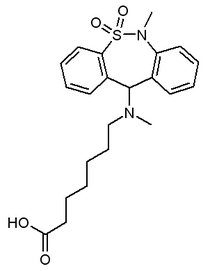Anti-depressant found to stop brain shrinkage
By LAURAN NEERGAARD
Associated Press
Tuesday, October 2, 2001
Washington -- Major depression makes an important part of the brain actually shrink. Stress seems to be a suspect, but no one knows how to stop or reverse the atrophy.
Now a new study of primates' brains says a European anti- depressant seems to counter the shrinkage -- raising calls for more research to see whether other medications might help people, too.
"These are impressive and important findings," said Robert Sapolsky of Stanford University, who reviewed the new research, published in today's Proceedings of the National Academy of Sciences.
But, "mind you, this is one anti-depressant and this is a fairly atypical one" compared with the anti-depressants most Americans use, Sapolsky cautioned.
German researchers tested a new anti-depressant sold only in Europe called tianeptine. The anti-depressants most popular in the United States -- Prozac and similar medications -- work by blocking the dissipation of a neurotransmitter called serotonin that is important for mood. Tianeptine does exactly the opposite, enhancing serotonin uptake.
Major, long-term depression can cause a brain region called the hippocampus to shrink, in some cases nearly 20%. The hippocampus is important for learning and memory, so that probably explains why memory loss often accompanies depression. And the region doesn't seem to bounce back after the depression is cured.
Nobody knows exactly why this atrophy occurs: Neurons may die or shrink, or ones that should have been born to replenish the region may not be. Whichever, it does seem linked to a stress hormone called cortisol, because about half of seriously depressed patients secrete too much cortisol.
To see if tianeptine could help, neurobiologist Eberhard Fuchs and colleagues at the German Primate Center tested tree shrews, which exhibit a classic model for human depression when exposed to social stress.
Over the 35-day study period, depressed shrews experienced excess cortisol, decreased amounts of brain chemicals important for healthy cells, a 33% decrease in new cell growth and a 7% decline in hippocampal volume. But shrews that were given oral tianeptine saw their brain chemical concentrations return to normal, cell growth restart and the hippocampus return to its pre-depression size.
"This increase produced by tianeptine suggests that hippocampal volume loss in depressed humans could possibly be prevented by anti- depressants," Fuchs concluded.
Copyright 2001 Journal Sentinel Inc. Note: This notice does not
apply to those news items already copyrighted and received through
wire services or other media
Provided by ProQuest Information and Learning Company. All rights Reserved.



